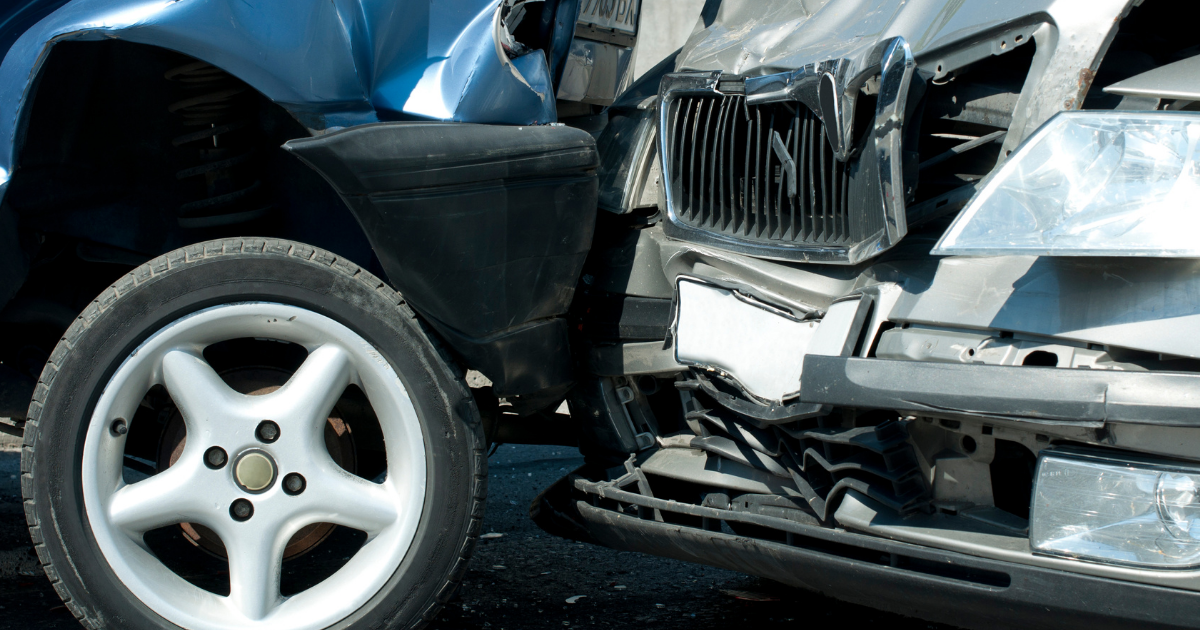If you have ever been in a car accident, you know how stressful the experience can be, even if everyone involved is fortunate enough to come out uninjured. However, you may still have to deal with the damage to your vehicle. If the estimated cost of repairing crash damage is more than the value of the car itself, the vehicle is declared a “total loss.”
After a car accident, you file a claim with the insurance company. If you caused the accident, you file with your insurance company. If another driver was at fault, you file a claim with their insurer. The insurance adjuster then comes out to assess the damage to your vehicle and estimate how much it will cost to fix the car. Auto repair costs often exceed the actual value of the vehicle. If the damages are significant, it may not be worth it to repair the vehicle. If that is the case, the insurance company declares it a total loss; your vehicle is totaled.
When a vehicle is totaled, the insurance company pays the owner a cash settlement, a check for the amount of the actual cash value on the car. If the vehicle is financed, the check goes to the bank or financing company. They deduct what is owed on the car and the remainder goes to the borrower. For a leased vehicle, the payout goes straight to the leasing company.
If you own your vehicle free and clear, you will receive the entire payout to go and purchase a new car.
How Is the Total Car Loss Value Calculated?
When calculating the value of your vehicle, the insurance adjuster considers several factors, including the age, make, and model of the vehicle along with how many miles. Adjusters also refer to the Kelley Blue Book and the National Automobile Dealers Association (NADA) guide to determine the average value of different types of vehicles.
Once the adjuster determines how much your vehicle was worth before it was damaged, they estimate how much it will cost to repair the car. If those repairs exceed the actual cash value (ACV) of the car, they declare it a total loss.
In some states, the total for repairs only needs to exceed a set percentage of the car’s value to be considered totaled. That percentage is called the “total loss threshold” (TLT). Virginia has a TLT of 75 percent.
Other states apply something called the “total loss formula” (TLF). In those states, a vehicle is declared totaled if the total for repairs and labor, plus the resale value of the parts and metal exceeds its ACV.
Not All Damage Is Obvious
It may surprise you what is considered a total loss. While accident damage may not seem significant at first glance, sudden and forceful impact can cause unseen problems that compromise a vehicle’s function and safety.
Unseen damage on a totaled car can include issues with the following:
- Alignment: Although vehicle bumpers are designed to absorb most of the force of a collision, a crash can shift a vehicle out of alignment. If your car is out of alignment is will not only operate inefficiently, but braking ability can be impacted, which is a significant safety risk.
- Computer systems: When computer diagnostics are damaged in a crash, they may not accurately check internal systems and report issues in a timely manner. That leaves the driver unaware of safety issues until it is too late.
- Leaks: Leaks are common after a powerful collision. Even a minor accident can cause leaks in any part of the vehicle that contain fluid, impacting function, drivability, and passenger safety as well.
You should never assume your vehicle is undamaged simply by looking at the car. Always report a car accident to the police, even if it seems minor. If the other driver caused the accident and you suspect their insurance company is minimizing the damage, take steps to protect yourself.
Additionally, you should contact a trusted auto body shop for another opinion. You should also call a lawyer who is experienced in handling complex auto accident cases.
Do Your Research Before Accepting an Insurance Payout for a Total Loss
While it is tempting to accepting the first insurance payout offer for your totaled car, you should always proceed with caution before signing off on the dotted line. You will need enough money for a down payment for a whole new vehicle.
Consider the offer. Are you getting the fair value for your vehicle? If you are unsure, ask a trusted mechanic for their opinion. It is always a good idea to get a few estimates regardless.
Additionally, think about any enhancements you have made since you have owned the car. Did you add aftermarket accessories or parts that increased the value of your vehicle? If you have receipts, that is even better.
In many cases, the insurance company will offer a payout based on the lowest bid. If you are not confident you are getting a reasonable payout based on your own research, you have the right to refuse it and ask the insurance company to come back with a better offer.
If your vehicle can be repaired, know that the insurance company cannot force you to get it fixed at a specific repair shop. They can only ask for additional estimates if they feel yours is too high.
What Should I Do if My Car Is Totaled?
If your car is declared a total loss, the insurance company will ask you to do a few steps. The faster you complete them, the faster you can move forward and obtain another vehicle:
- Remove your personal belongings from the vehicle.
- Take off the license plate.
- Send in any extra keys.
- Fill out the proper paperwork.
When a car is declared totaled, the insurance company usually takes the car, notifies the Department of Motor Vehicles, and declares it as salvage, and sells it to a buyer. Some vehicle owners choose to keep their totaled car because they want to scrap it for parts. In some states, this is not permitted for safety reasons.
Other states allow owners to keep them, but on the condition that they obtain a certificate stating the car is salvage. If you do keep your totaled vehicle, know the insurance company deducts the salvage value from your final payout. That means less money to buy a new car.
For many people who have been injured in a car accident, an insurance payout is not enough to cover the costs associated with medical care, lost income, and pain and suffering. If they have cause to bring a legal claim for damages, additional compensation may be available. If you have been injured in an accident and have questions about your legal options, contact a lawyer to learn more.
Virginia Beach Car Accident Lawyers Represent Clients Involved in Serious Collisions
If you have sustained injuries from a car accident and your vehicle is totaled, contact one of our Virginia Beach car accident lawyers. At East Coast Trial Lawyers, we are here to fight for your rights. Call us at 757-352-2237 or contact us online to schedule a free consultation. Located in Virginia Beach, we serve clients throughout Chesapeake, Eastern Shore, Hampton, Newport News, Norfolk, Portsmouth, and Suffolk, Virginia, as well as North Carolina and nationwide.


